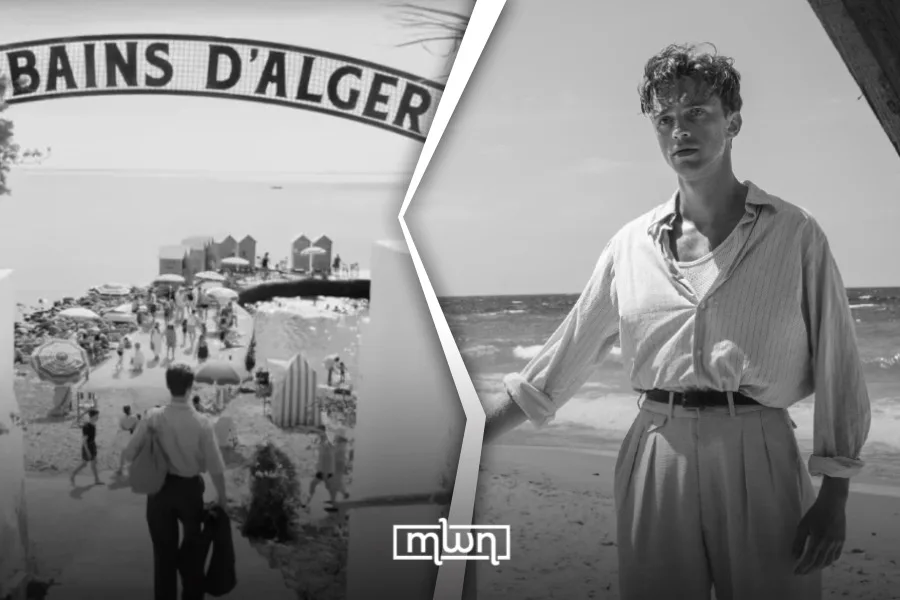The timeless words of Albert Camus are about to hit the big screen again, and this time, the backdrop is Morocco.
Fez– Acclaimed French director François Ozon has dared to tackle “L’Étranger” (The Stranger), one of the most iconic novels in world literature, in a bold black-and-white adaptation filmed in Tangier.
The movie, starring Benjamin Voisin as the enigmatic Meursault, will compete for the Golden Lion at the 82nd Venice International Film Festival, running from August 27 to September 6, 2025.
For Moroccan cinema enthusiasts, the real excitement is that Tangier has stepped in to play the role of 1940s Algiers, complete with its colonial-era streets and sunlit beaches.
Tangier as Algiers: Morocco’s cinematic chameleon
Shot in April, the film transforms the northern Moroccan city into a slice of history.
Its whitewashed façades, narrow streets, and sweeping coastline mirror the mood of Camus’ world, bleak yet beautiful, intimate yet vast.
In the newly released trailer, Morocco shines quietly but powerfully, with its architecture and atmosphere shaping the narrative.
The story remains faithful to Camus’ haunting plot. Meursault, a modest office worker in his thirties, shows no sign of grief after burying his mother.
He drifts into an affair with Marie (played by Rebecca Marder), only to be accused of murder following a fatal shooting on a sun-drenched beach.
The disquieting exploration of absurdity and alienation that made the novel legendary is front and center in Ozon’s interpretation.
Ozon on adapting a literary giant
With “The Stranger” marking his 34th feature film, Ozon admits this project carried a unique weight.
“The idea of adapting one of the most famous novels in the world sparked anxiety and doubt,” he wrote in his director’s note for the Venice press kit.
“Until now, I had adapted lesser-known works. Taking on a masterpiece that everyone has read, and already visualized in their own minds, was a tremendous challenge.
But my passion for the book outweighed my fears, so I dove in with a certain lightness.”
For Ozon, the film was also personal. He revealed that his maternal grandfather served as an investigating judge in Bône (now Annaba) during the French colonial era in Algeria.
In 1956, his grandfather narrowly escaped an assassination attempt, an event that led the family to return to France.
“Working on this film allowed me to reconnect with a forgotten part of my own story,” Ozon said, noting how research into archives and conversations with historians deepened his perspective.
“I realized how deeply France and Algeria remain tied, and how heavy the silence around these shared histories still is.”
It has been sixty years since Italian filmmaker Luchino Visconti’s adaptation of Camus’ novel.
Ozon’s take promises something different: a visual austerity that mirrors the existential void at the heart of the story, and a Moroccan setting that adds layers of resonance for today’s audience.
The film is slated for release in October 2025. Between its Venice debut and its arrival in theaters, cinephiles are already buzzing, about Ozon’s daring approach, about Benjamin Voisin stepping into Meursault’s shoes, and, of course, about Tangier’s starring role as the city that never was.
















